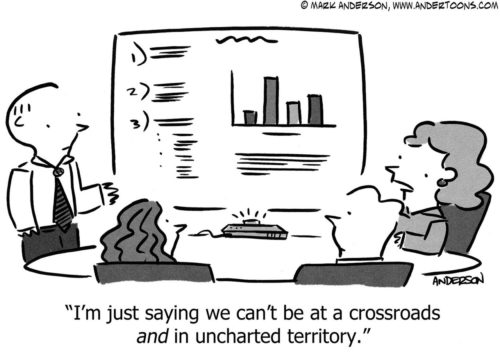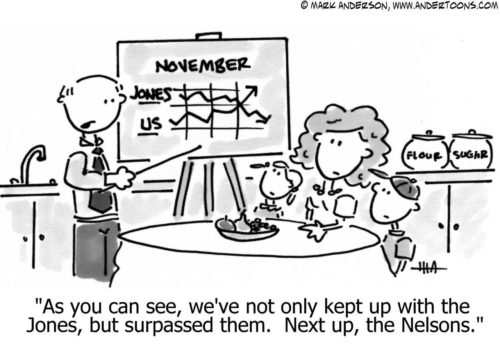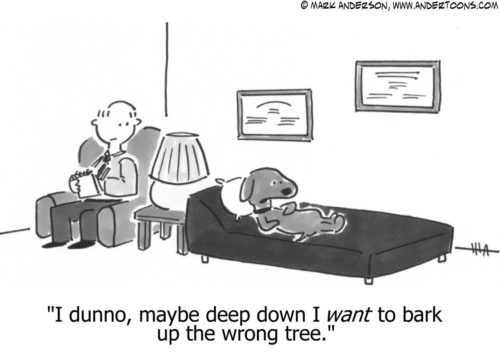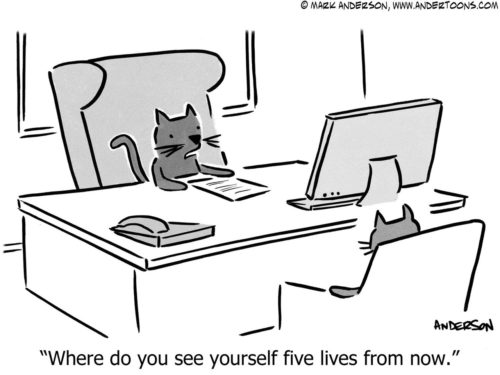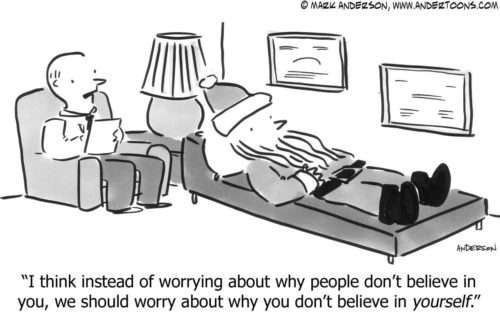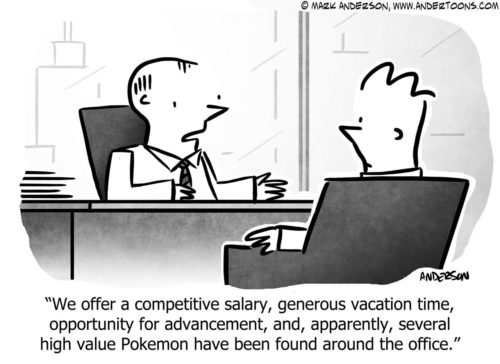Startup strategy is like Kung Fu. There are many styles that work. But in a bar fight, you’re going to get punched in the face regardless.
I can only teach you my style. Others can only teach you theirs.
This is my style.
“MVPs” are too M to be V. They’re a selfish ploy, tricking people who thought they were customers into being alpha testers. Build SLCs instead.
I don’t like freemium; I want to learn from people who care enough to pay, not from the 20x more who don’t.
Founders almost never have a real strategy. They say things like “we have a unique feature” and “the incumbents are dumb,” which might be true, but isn’t a strategy. They don’t know how to analyze a market or competition, so they make it up instead learning how to do it. This is a common but largely unacknowledged reason why companies fail. Founders explain failures with things like “our two main competitors did [thing] to us” or “customers didn’t understand [our point of view].” The implication is that this was unknowable or bad luck, but the truth is, this was a predictable result of not understanding the market.
Power Laws are useful to understand and exploit. But don’t get hung up on it. The 10,000th biggest company in the world is a very successful company, as is the two-person company where the founders each take home $300k/year.
All startups are screwed up. Even when they’re succeeding they are screwed up. (HT Mike Maples Jr) Corollary: A startup has to be so excellent at one or two key things, that they can screw up everything else up and not die. Sometimes that’s airtight product/market fit. Sometimes that’s defensible distribution channels. Sometimes that’s product design so thrilling that every customer spreads the word to five more. Sometimes that’s a market insight that takes competitors five years to understand. Sometimes that’s a dream team that weathers the storm that sinks the other boats. The bad news is, you don’t know ahead of time what that thing will be. The good news is, it’s OK that most things are screwed up.
Another Corollary: Your competitors are screwed up too. Don’t assume they’re smarter than you, faster than you, more strategic than you, growing faster than you, making better decisions than you. They are doing that sometimes, but you are too, and all of you are screwed up. When you look at them, you’re seeing their best, exaggerated projection, which isn’t the truth. Every time a company dies, read what they were writing a week earlier: proud, confident, optimistic, possibly even arrogant and boastful. Ignore all of it.
If you have more than three priorities, you have none. (HT Tony Hsieh)
It’s better to complete 100% of 8 things than of 80% of 10 things. (HT Dave Kellogg)
Too often, decisions are made “because a competitor is doing [something]” or “because a competitor might do [something].” Occasionally, that’s the right motivation. But usually, you should focus on what’s best for the customer and your company.
Before you pronounce one of your competitors “dumb,” consider that it’s much more likely that everyone working there are very likely of above-average intelligence. More useful is to ask: “If a thoughtful person were making that choice, why would that be?” You might learn something about their strategy or goals.
LTV is invalid until the company is more than five years old; even then it’s more noise than signal. Instead, watch payback period for acquisition efficiency, watch retention for product/market fit, watch expansion revenue for long-term growth, and watch gross margin for long-term profitability.
Churn needs to be lower than you think; 3% monthly churn is too high, and means you’re either not delivering recurring value, haven’t found product/market fit, the market stinks, or some other critical problem.
There isn’t one most important SaaS metric. Priority depends on your goals (e.g. profitability versus size) and on what, at this moment, is so out of whack that ignoring it is fatal.
You’re not allocating enough costs to gross margin or the cost to acquire a customer. You think this doesn’t matter because you’re not a public company or didn’t raise money, but it does matter because it means you don’t understand the financial mechanics of your business.
Fermi estimation is a good way to figure out whether a startup or product could even theoretically be viable. Beware: people tend to round up to the better power of ten because they don’t want to face the truth. Real life usually rounds down.
Being focussed on SaaS metrics is not incompatible with valuing employee fulfillment and customer happiness. In fact, the latter two is crucial for producing the former.
A lot of businesses aren’t profitable even at scale. Founders assume “we can fix that later.” Often, you can’t.
I know you got profitable in three months, but you didn’t.
Telling the truth to customers and employees, especially when it’s difficult, is how you earn trust and loyalty.
The best business model in 2019 is “doing good.” It attracts and retains talent even when salaries are low and risk of failure is high. It attracts customers even when prices are high and quality is low. It’s also the way to marry capitalism with morality.
Your values are tested only when the decisions are tough, like losing money, hurting your brand, firing a highly-productive employee who isn’t a culture-fit, or a wonderful culture-fit who isn’t productive. Your values are defined by what you tolerate. Your culture, and even your purpose, is the outcome of living your values.
Find and focus on one reliable distribution mechanism before diluting your time diversifying. If you can’t find one sizable sustainable source of customers, the solution won’t be found by piecing together three small unsustainable ones.
The shiny new fad is hyper-competitive, temporary, and money pouring in means crappy companies can mess about for years, poisoning the market. The “boring” but established, large market is where revenue is easy and competition is old, slow, and has something to lose.
The only time you need “truly unique” tech and “an impossible-to-cross moat” is when your goal is to build a $1B+ company, which almost no one is (or should).
You can start by selling to small customers and evolve to larger ones, because you’re starting with a low cost-basis and then maturing your product and service. Or you can start selling to enterprise — nothing wrong with that — but then your high cost-basis of marketing, sales, and service will not scale downward.
Selling to the mid-market is hard. If you do it, expand into it later, after you’ve already mastered a different segment.
If you think Biz Dev is the solution to a difficult problem, you’re wrong. If you think it’s a way to add incremental value, then maybe, but still unlikely until you’re at $50M+ in ARR.
Great products don’t sell themselves, but they can cause customers to talk about it to other customers. You still have to get the first customers, and most of the rest, yourself.
Most “customer discovery” is really a founder in love with a product, trying to justify to herself that there is a market. She does this by selling for forty-five minutes instead investigating and disproving. And by talking about cool features instead of asking about price. And by remembering confirmatory evidence while conveniently forgetting or explaining away the rest, even though “the rest” is where the real learnings reside.
Pricing determines everything else. Corollary: Price must be part of your initial customer discovery, not an afterthought after you “first make sure there’s a pain. “
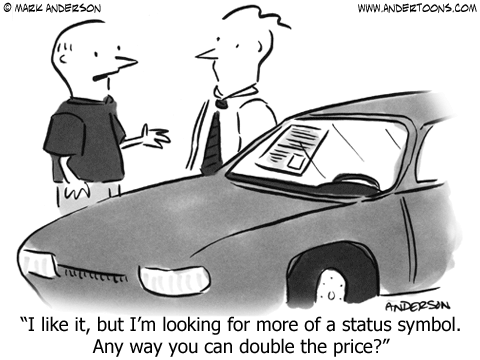
It’s hard to get 1000 paying customers. It’s easy to get to 100 if you have a real product. Price so that 100-200 is enough for all the founders to work full-time. This means you have to charge $50-$500/mo, and make something of genuine value.
Most of the time, real pain points addressed by great products are not a business. Which is why founders confidently begin and are surprised when it fails. A business also requires that there are many potential customers, who realize they have the problem, who you can reach at a reasonable cost, and then convince to convert, at a profitable price, against existing market dynamics, and last for years. Early on, your job is to validate that there’s a business, not to validate that your idea is good or that a pain exists.
“Sales” is not a dirty word.
A reliable paid acquisition channel results in a somewhat stable business. It’s boring and doesn’t make you famous and doesn’t play into the false but common narrative that SEO and viral content will launch your startup into the market with almost no money. So people run after the false narrative instead of the thing that’s most likely to work.
People don’t value their time. They will do crazy things to save $2. Don’t sell a product that saves time to people who don’t care about saving time. Businesses often don’t care just as much as consumers don’t care.
Corollary: Sell more value, not more time. Even businesses who can compute the ROI of saving time, will compute a much larger ROI for creating value.
Your time being 90% allocated is bad.
Bet on things which are true today, and will be even more true in five years; not on your guess at how the future will be different. (HT Jeff Bezos) You want to argue that the future is unknowable, but that’s just an excuse for not having a strategy.
The “long tail” can sound appealing, but it sure is easy to sell vanilla ice cream at the beach even when you’re right next to another ice cream stand.
Yes, marketplace businesses can be valuable and defensible. But their failure rate is much higher than product businesses, and they require copious venture funding. They have to work with 10 people in the system, not just when there’s 10M.
If someone deploys a code change and brings down the entire system, the fault is with the brittleness of the system, not with the person.
Corollary: If a talented person at your company does something “dumb,” the next question is: What did you fail to do as a leader? Did that person not have the right information, or enough context, or were they worried about something, or what?
One-on-ones are never a waste of time. Agendas are optional and sometimes even counterproductive.
If you’re the smartest one in the room, you’ve made a terrible mistake. Either you haven’t hired great talent, or you have but you’re disempowering them. This is the opposite of what a great leader does, and minimizes the success of the organization. Andrew Carnegie wrote for his own tombstone: “Here lies a man who knew how to bring into his service men better than he was himself.” Ignore the gendered language but heed the lesson.
Starting up is the act of doing as many jobs as possible so your company can survive. Scaling is the act of shedding as many jobs as possible so your company can survive. [quoted from Aaron Levie]
If you believe someone with a title of XYZ isn’t useful, or important, you’ve never worked with greatness at that function. Maintain that attitude, if you want a blind spot in your organization forever.
If someone at your company has no way to grow into a new role, they will leave, as well they should. “New role” can mean sophistication, management, or a different job. “No way” can mean because they’re unable or because the role they want cannot exist.
Founders are caught by surprise by the scaling phase. If you haven’t operated at the executive level at a scaling startup, you don’t appreciate how different and difficult it is. There are not enough blogs or books about this phase; often leaders go underground. Founders arrogantly believe that the beginning is the hardest part, because it is hard. But many startups top out between $5m-$20m in revenue. That’s fine if you don’t wish to scale. But if you do, your arrogance prevents you from the necessary transformations. What got you to $20m is very different from what gets you to $100m. You need help, new sorts of employees with a different organization, and you’d better surround yourself with people with more experience and skills than you have. How will your ego cope with that?
If you can’t unplug for a month without adversely affecting the business, then you have a brittle business. If the business is young, this is inevitable. Otherwise, this is a failure of organizational development.
Management systems, whether about performance management, or leadership, or healthy teams, or product strategy, or one-on-one interactions, or meetings, or productivity — are like deciding between coding styles. They’re all pretty good, so just pick one system you can stick to, and maximize it.
Make important decisions by optimizing for the one or two most important things, not by satisfying a dozen constraints. Maximize opportunity rather than minimize down-side.
Leave money on the table. The customer should derive 10x more value than it costs them. You earn loyalty and future upgrades. Karma works.
If you can’t double your prices, you’re in a weak market position. Determine the causes and address them purposefully.
Your product must materially impact one of your customer’s top three priorities. Otherwise, they don’t have time to talk to you. (HT Tom Tunguz)
A good strategy is to be the System of Record for something. (HT Tom Tunguz)
It’s more powerful to be 10x better at one thing, then to shore up ten weaknesses.
If your sales and marketing expenses are high, that either means your marketing is extremely competitive, or that people don’t naturally believe they need your product. If the latter, they might be right. If the former, you need large differentiation — more than a feature or two. If you don’t solve this problem, the company is ultimately unsustainable.
No one will read the Important Text in your dialog box.
Design is important, yet many of the $1B+ SaaS public companies have poor design. So, other things are more important.
Operate on cash-basis. Analyze on GAAP-basis. Don’t cheat on GAAP — you’re only lying to yourself.
“I don’t have time” actually means “I don’t want to.”
The only cause of Writer’s Block is high standards. Type garbage. Editing is 10x easier than writing.
Vitriol online usually comes from that person defending self image or impressing others. Either way, it’s about them, not you. Often there’s a constructive learning inside which you should take to heart, but discard the petulant packaging.
Your Impostor Syndrome is tiresome. Just stop already.
“Desire to seem clever, to be talked about, to be remembered after death, to get your own back on the grown-ups who snubbed you in childhood, etc., etc. It is humbug to pretend this is not a motive, and a strong one. Writers share this characteristic with scientists, artists, politicians, lawyers, soldiers, successful businessmen — in short, with the whole top crust of humanity.” — George Orwell, Why I Write
The desire to impress others drives behavior more than logical argument. Founders start companies to show everyone else that they’re better than those everyones give them credit for. Angel investors want a story and celebrity by association at cocktail parties. Making your parents proud is often a stronger force than solving for the best risk-adjusted return.
It’s cliché, but it really is the journey, not the destination.
A lot of it is luck. Nevertheless, your operating plan should assume it’s all under your control, and run experiments. It’s your ego that needs to remember that a lot of it is luck.
Once we gain power or success, we forget what it took to get there, and we can’t account for the role of luck. This impedes sympathy and the ability to deliver appropriate advice.
“Everyone thinks of changing the world. No one thinks of changing themselves.” —Leo Tolstoy. Founders have to be arrogant to believe they can create something new and better, but the great founders are not so arrogant that they don’t evolve. Bezos, Zuckerberg, Page, Hoffman, all have a history of personal transformation. This is more difficult than building products.
You can have two Big Things in your life, but not three.
There’s no point in creating another huge company with a crappy culture that no one really wants to work at. But there’s every reason to create a company that creates 100 good jobs that people love working at, and where they are valued, and can grow.
The first 10 people will join because you’re a startup: They get excitement, influence, caché, unique experience, and a small shot at outsized remuneration. But why will the 500th person join? If you can’t answer that, you aren’t building a company worth joining, which means you won’t be hiring awesome talent, and it means you don’t have a purpose other than revenue. Fix that now.
Your top talent are volunteers. They can get another job across the street for more money, because they’re the same person you hired except with more experience. It takes a different attitude and toolbox to motivate, inspire, and lead a volunteer, rather than a servant.
Making a difference in the world means having an impact on people’s lives. Even just a few people. It does not mean tricking 1,000,000 people to stick their nose in your app. One person who loves coming to work instead of loathing what they do with 1/3rd of their time on Earth, is enough. One person who was given a chance to grow and progress instead of being stuck being under-paid and under-developed, and under-appreciated, is enough.
Some things in life have to be experienced to be understood. Kids, founding a startup, scaling a startup, selling a startup. Does this contradict the rest of this page? Life can be contradictory.
This is my Kung Fu style. If you dislike my style, you are not wrong. In fact, that’s good — the world needs many styles.
All styles have strengths and weaknesses.
Pick the style that fits you, and master it.

